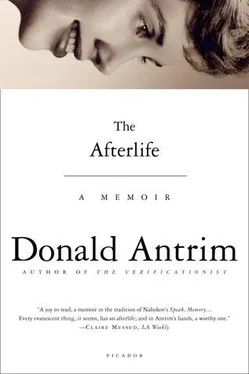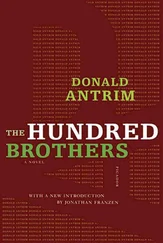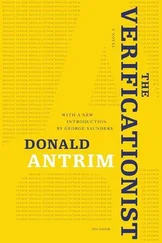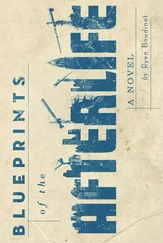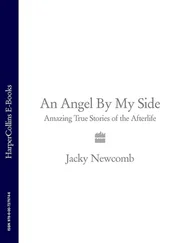All things considered, it seems that Bob — or, I should say, Eldridge — never had optimum chances for success in life. In addition to the difficulties imposed by an eccentric father and an imperious mother, he had to contend with his older brother, my father. In stories my mother told about him, my father as a young man comes off as an intimidatingly popular and accomplished student, clearly in the most-likely-to-succeed category, and much doted on by his mother, who, removed at last to Florida, had become the Sarasota High School Latin teacher, known to her students as Old Caesar. And, in fact, Eliza Antrim had in good measure the kind of sober reserve with which urbane people carry themselves when living in environments that are essentially colonial. The same could probably have been said for Julius Caesar, keeping order by the sword in the barbarous reaches of the empire. Unlike the historical Caesar’s imperial subjects, though, my grandmother’s students eventually moved on in life, escaping her rule. Even my father, who, by becoming a professor, a professional intellectual, fulfilled in part her dreams for him, was able to marry, have children, and build a life separate from his mother. My uncle remained her vassal for life.
Here’s some of what I know. In 1958, at the age of eighteen, Eldridge left home to study literature and art at the University of the South, in Sewanee, Tennessee. He painted and made drawings, but none of his work survives from this period, or from any other in his life. After college, he moved north to New York City, where he settled into an apartment in the East Seventies and enrolled in the Manufacturers Hanover Trust executive-training program. It is unlikely that he had plans to support himself as an artist by becoming a bank vice-president. Apparently, he accumulated debts, spent evenings in the bars along Second and Third avenues, and either failed or simply dropped out of the training program, though not before meeting, in his classes on retail and commercial banking, the love of his life. M. was — and is — a beautiful and intelligent woman who remained until recently a successful banker. The fact that my uncle became, subsequent to his rapid exit from corporate culture, a cabdriver and an Upper East Side doorman did not deter M., who undoubtedly saw, as people will when profoundly attached to lovers on their way to falling through the cracks, some version of him that would forever exist as Potential.
I remember M. from a trip my family took to New York when I was ten and my sister nine; and I remember my uncle in his apartment, a place I thought of frequently when I found myself living in New York, in my own small, sparsely furnished walk-up only blocks away from where he’d lived twenty years before. The highlight of that trip was an afternoon at FAO Schwarz, the world’s greatest toy store, gift certificates — presents from Uncle Eldridge — clutched in our hands. I chose, after much exploring and considering (and perhaps in awareness that it was my uncle’s dream to get his pilot’s license and fly jumbo jets), one of those plastic planes driven by a loud, buzzing engine in circular orbit around the “pilot.” It was a cheap toy airplane destined to crash and break apart when, as soon as my father got it in the air (I never flew the thing), the handheld control lines became tangled and useless, causing the plane to jerk downward and nose-dive into the ground.
At any rate, M. was very much on the scene at that time, and my sister and I pestered her and Eldridge mercilessly about their getting married — why weren’t they married? — much as we would hound them about this in the years to come, even after our uncle had given up on New York and drifted down the coast, finally returning to Florida to live in his parents’ house, in a tiny wood-paneled room crammed with guns and ammunition, British novels, all manner of sporting gear, antique toy soldiers displayed on dusty shelves, a short and narrow bed with a tartan blanket, and, stacked within easy reach of the bed, back issues of the same kinds of magazines he kept in the trunk of his car — automobile, airplane, scuba, golf, tennis, rifle, archery, and Playboy.
It may have been his room that attracted me, when I was a teenager in Miami, to my uncle’s way of life. Everything about it seemed desirable to me, because it was his , I suppose, and because everything he did spoke to adolescent pleasures.
He created the illusion that he was his own man, and free.
I was thirteen when I started riding the bus across the Everglades to visit him. I used to sit by the window and watch for alligators in the black canals beside the highway, as, in the far distance, fires lit by heat lightning burned off the dry grass and the stunted pines that grew in clusters like innumerable tiny islands rising from the shallow waters south of Naples. By this time, around 1972, my grandfather Robert Antrim had died, and my uncle had more or less abandoned any dreams he might have had of a life somewhere removed from his mother’s house. My own mother’s drinking had reached a level best described as operatically suicidal, and she and my father — married, divorced, then remarried to each other — waged their war nightly. My sister had got busy saving herself through academics. I’d got busy flunking out. Our Siamese had eaten a poisonous South American toad and was afflicted with seizures that caused her to fall down and twitch violently. The other cat had reached the age at which vomiting was chronic.
And when in the deep of the night my mother came into my room swaying, half conscious and with gray smoke from her cigarette wreathing her face, shattered by bourbon and white wine; and when she raised her hand to strike, and I easily batted her arm back, then stepped forward and quickly steadied her before she tipped; when, holding my mother upright, I looked past her to see my father watching us from the shadows outside my room, whispering that he was sorry for everything — when these things happened, there eventually came a point at which feeling, or whatever it is we call feeling, broke apart in me. And though it’s true that I felt anger and shame and fear — emotions that I live with still, more than thirty years after my solitary pilgrimages to the playtime world of Uncle Bob — it was also true that I felt nothing at all. And in order to share this feeling that was not a feeling, in order to be with another person, a man, as I realize now, who was like the man I might one day become, a man drained of feeling, I boarded a bus.
The bus carried me past Frog City and the Miccosukee Indian settlements, all those alligator-wrestling parks and airboat-rental outposts. At Naples, the scenery changed, and the bus took a right turn and headed up the suburban Gulf Coast, stopping in Fort Myers, Punta Gorda, Port Charlotte, and other centerless non-towns I can’t remember the names of, continuing north toward Venice, the home of retired circus performers, crossing one bridge after another and another, over narrow inlets and motorboats moored by the hundreds, before finally arriving, after what seems in memory an endless journey, in Sarasota, the town where I was born, and where my uncle, sunburned and smelling of English Leather and the beer he’d drunk the night before, waited to greet me at the station with the one question I have been trying to answer for myself ever since: “What do you want to do?”
We got in the car. We rolled down the windows. We turned on the radio. We began to drive. After a moment, I asked him the question I always looked forward to asking upon seeing him for the first time in a long time.
“Eldridge, what are you eating?”
“Pork chops.”
“How’re you fixing them?”
“I’m broiling them.”
“What are you having with them?”
Читать дальше
